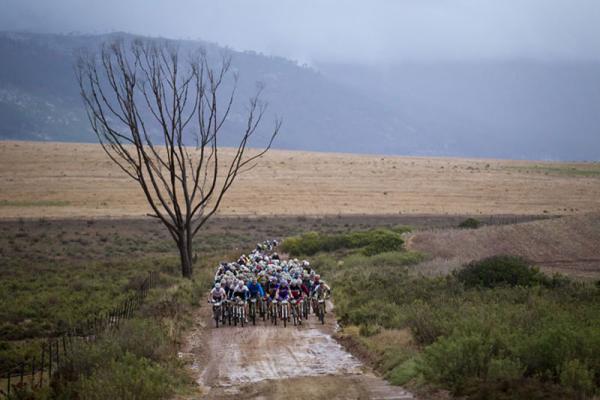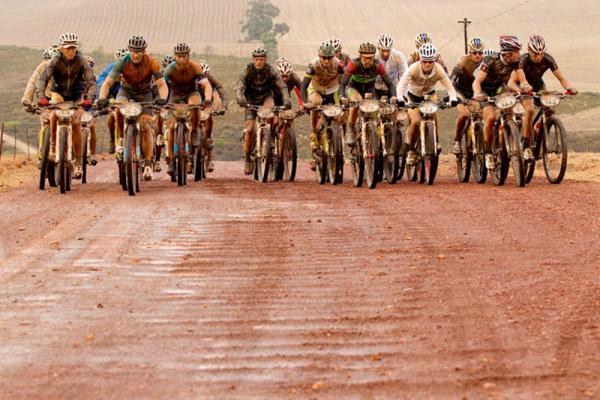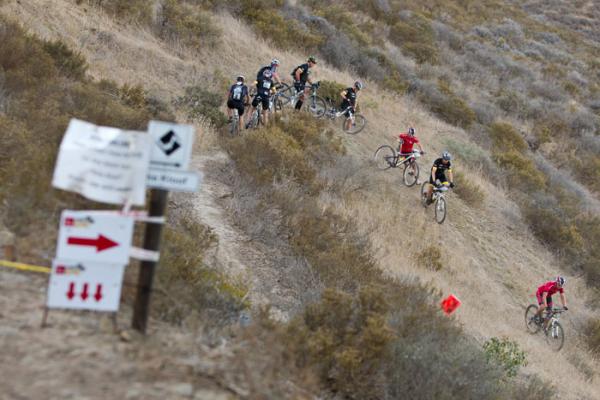Cape Epic imposes lifetime bans for doping
Mountain bike stage race also increases in-competition testing



The Absa Cape Epic is tightening its rules regarding anti-doping by introducing a lifetime ban for future offenders in the wake of the first high-profile doping case in South African mountain biking.
"As of January 1, 2013, any athlete (professional or amateur) caught using performance enhancing substances, whether at another event or out of competition, will be banned for life from participating in the Cape Epic," said race founder Kevin Vermaak.
"Not only will the person not be allowed to participate (as an amateur rider or UCI-licensed elite), but the individual will also be banned from being involved on any level including as a team manager. This is harsher than what is required currently by any federation, but is our considered opinion of what should be enforced even on a wider scale with regards to event participation of convicted dope cheats."
In November, the South African Institute for Drug-Free Sport (SAIDS) announced that top cyclist and Cape Epic contender, David George, had tested positive for the banned drug, EPO (Erythropoietin) and would face a charge of doping at an independent tribunal.
George has officially been given a two-year ban, prohibiting him from cycling professionally for this time period. SAIDS indicated that only results dating back to August 29 this year can be erased, thus George's 2012 Cape Epic results will remain unaffected. With his riding partner Kevin Evans, George finished in second place overall in this year's Cape Epic, his best performance in the event to date. George has also won the African Jersey at the Cape Epic three times (2008, 2009, and 2012) and, together with Evans, was a strong contender to be the first all South African team to win the race next year.
Vermaak said, "We've chosen not to apply this retrospectively because we believe that would be naive. As has been exposed in recent months, cycling has a dark past. Many riders from this previous era have rediscovered the joy of cycling as mountain bikers and participate in the Cape Epic as their expression of riding clean. Previous offenders, who have served their suspension term, may ride future Cape Epics. We want to be part of the new era of cleaner cycling, and therefore only future offenders will receive the lifetime bans.
"Since the Cape Epic was awarded UCI HC status, we've invested more than R800,000 into our anti-doping programme at the race and to date have only recorded one positive in-competition test at the event by an amateur," said Vermaak.
The latest race content, interviews, features, reviews and expert buying guides, direct to your inbox!
That positive doping test came from amateur cyclist Wayne Collin, who tested positive for the anabolic agent Boldenone and a diuretic Hydrochlorothiazide in the most recent edition. Collin is set to appear before the SAIDS tribunal on January 24, 2013. The Cape Epic was made aware of Collin's positive test this month, nine months after the positive test. Cape Epic organizers said that Cycling SA did not notify them according to standard protocol, and as requested by the SAIDS. The race is awaiting the outcome of the SAIDS tribunal in January before amending 2012 results. Collin remains suspended from all competition until his case is concluded.
The race's anti-doping programme is overseen by the UCI appointed Doping Control Officer who works with SAIDS to test athletes. "With the financial help of our sponsors, we will increase our investment in this programme for 2013 by increasing the number of athletes tested. We'll also increase the time-window classified as in-competition testing," said Vermaak.
Organizers have been using their race to make mountain biking increasingly professional over the years. "The prize monies have been increased to R1 million in 2013 which consolidates the event's position as largest prize purse in the world of endurance mountain biking. We also provide much greater media value output for team sponsors as this year's event received over 4,000 hours of global television coverage. We feel that our uncompromising stance on dope cheats is another step in making not only South African mountain biking more professional, but also improving this discipline on a global scale. Obviously our actions alone can't keep the entire sport of mountain biking clean, but I want to be 100% certain that we, as one of the most competitive mountain bike stage races in the world, are doing everything possible to play our role in the quest to eradicate doping in mountain biking," Vermaak said.
